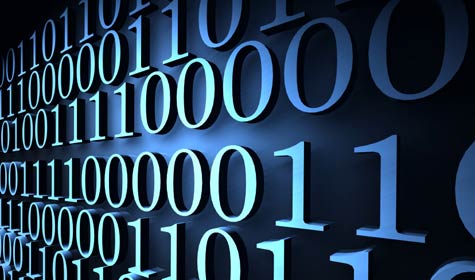Last week was the Consumer Electronics Show, which means this week every industry watcher seems to be freaking out about the Internet of Things. All I can think is, seriously? How did you not see this coming?
The most common concern with the Internet of Things is privacy, of course. And forget Kim Kardashian – after CES, pundits are rightly worried that the IoT could break the Internet with all the wireless noise these devices will generate.
I shouldn’t downplay those concerns, but I’m going to. We’ve established that people are willing to forgo privacy in exchange for certain services — witness Facebook and FourSquare. So I’m inclined to agree with GigaOm’s assertion that the data privacy ship sailed long ago.
The traffic concerns may be more of a barrier to adoption, but solutions are already in the works. Also, I would anticipate this might work itself out as people decide for themselves what’s worth the bandwidth hit and what’s not.
No, to my mind, the data is what should give all of us — consumers, business and technologists — serious pause. Here’s why:
Big Data … now even bigger. “Big data and the IoT are two sides of the same coin,” writes Alistair Croll in a Radar O’Reilly article. “The IoT collects data from myriad sensors; that data is classified, organized, and used to make automated decisions; and the IoT, in turn, acts on it. It’s precisely this ever-accelerating feedback loop that makes the coin as a whole so compelling.”
But realistically, most organizations are still timid about basic Big Data. That makes them far from ready to deal with the data deluge the IoT will bring, as Duke Chung, co-founder and chief marketing officer of customer service support technology company Parature, pointed out in August.
“The fact that millions of devices will soon be Wi-Fi enabled will cause a flood of user data for companies to sift through,” Chung wrote in a Harvard Business Review blog. “Businesses can use this data to understand where issues are happening on their products, how frequently, and best resolutions — but only if they have the means to analyze it.”
Debatable Data Ownership. Unlike other data sources, IoT devices chatter constantly and intimately. That noise includes data about location, temperature, movement, even heartbeat — the kind of data that raises serious concerns over data ownership and security. Forbes points to GM’s OnStar as one example of how comprehensive the data collection can be.
“They can show you every GM OnStar customer who has had an accident on a day on a map, and show you ‘here’s where the airbag deployed,’” Gary Shapiro, president of the non-profit that runs CES each year, told Forbes.
Shapiro predicts that the real battle will be over who owns this data: the consumer, the company that created the device, or a perhaps a third party. Since owning the data is paramount when you consider data quality, data governance and even data analytics, you can see how this could quickly become a major point of contention for everyone involved.
Data Interoperability? Ha! Nothing is standardized with the IoT right now — not hardware, not platforms, and certainly not data. Do technologists never learn? Interoperability may not be a concern right now if, say, you’re a company that’s deploying one type of sensors. But what happens if a few sensors break and that particular device company is out of business — a situation that’s bound to occur as consolidation hits the IoT market. Or what if you’re a health care provider or weight loss company trying to accommodate every fitness doodad on the market?
As it stands now, everyone is more concerned with adoption than interoperability.
“When technical advances erode quickly, companies have little reason to cooperate on the data they collect,” writes Croll. “There’s no data lake in wearables, just myriad jealously guarded streams.”
This isn’t sustainable, he writes.
“With this many competitors, the industry will crash,” he warns. “To achieve simplicity, companies have over-focused on a single problem, or a single use case, deluding themselves that their beach-head is actually a sustainable market.”
Loraine Lawson is a veteran technology reporter and blogger. She currently writes the Integration blog for IT Business Edge, which covers all aspects of integration technology, including data governance and best practices. She has also covered IT/Business Alignment and IT Security for IT Business Edge. Before becoming a freelance writer, Lawson worked at TechRepublic as a site editor and writer, covering mobile, IT management, IT security and other technology trends. Previously, she was a webmaster at the Kentucky Transportation Cabinet and a newspaper journalist. Follow Lawson at Google+ and on Twitter.




